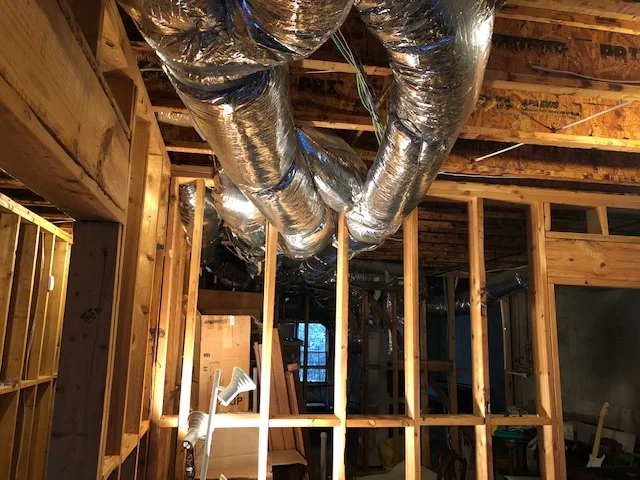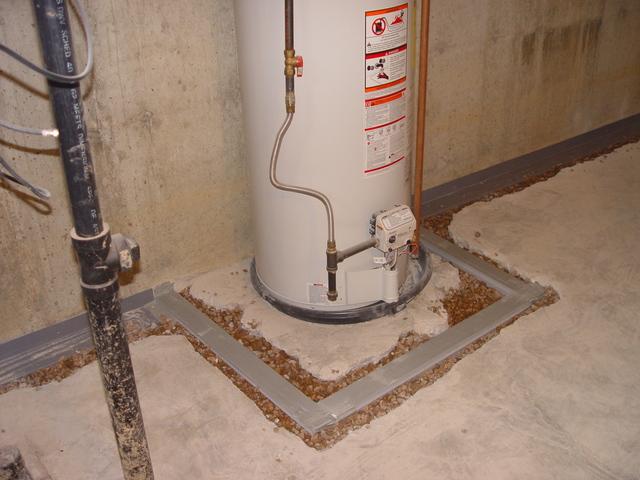As we move into an era of technological innovation and environmental consciousness, the heating oil industry is experiencing a transformation. Once considered a traditional and essential energy source for many households, heating oil systems are now at the crossroads of change. With the growing emphasis on sustainability, energy efficiency, and renewable energy alternatives, the future of heating oil systems looks set to evolve. In this blog post, we will explore the emerging trends in the heating oil industry and the factors driving the shift towards more efficient, eco-friendly solutions.
1. The Rise of Biofuels: A Greener Alternative
One of the most significant trends in the heating oil sector is the rise of biofuels. These are renewable energy sources derived from organic matter, such as plants, animals, and waste products. Biofuels, specifically biodiesel, are becoming increasingly popular as a replacement or supplement to traditional heating oil.
Unlike conventional heating oil, which is derived from fossil fuels, biofuels are biodegradable and produce fewer greenhouse gas emissions. Biodiesel, for example, can be produced from vegetable oils, animal fats, and even waste oils, making it a sustainable choice. As biofuel production technology improves, heating oil systems can run on higher blends of biodiesel (up to 20% biodiesel and 80% petroleum oil), reducing their environmental impact.
Biofuels also offer a way for homeowners and businesses to continue using their existing heating oil infrastructure, as biofuels can be blended with traditional heating oil without the need for major system modifications. As environmental regulations become stricter, and with the ongoing push for sustainability, biofuels are likely to play an increasingly important role in the future of heating oil systems.
2. Electrification and Hybrid Heating Systems
Another emerging trend in heating oil systems is the growing integration of electrification and hybrid systems. Electrification refers to the use of electricity as a primary energy source for heating, while hybrid systems combine traditional heating oil systems with electric heating elements or heat pumps.
Electrification is being driven by the rising demand for low-carbon heating solutions. The transition to electric heating systems is seen as a key step toward decarbonizing the residential and commercial heating sectors. Heat pumps, which use electricity to transfer heat from the outside air or ground into a building, are becoming more popular due to their efficiency and low carbon footprint.
For homeowners and businesses who still rely on heating oil but want to reduce their environmental impact, hybrid systems are an attractive option. A hybrid system typically combines a heating oil furnace with a heat pump or electric boiler, offering flexibility and energy efficiency. These systems can intelligently switch between oil and electricity depending on factors like outdoor temperature, energy costs, and overall efficiency.
The development of more efficient heat pumps and hybrid systems could mark a major shift in how we heat our homes and businesses, ultimately reducing our dependence on heating oil while still meeting energy needs effectively.
3. Advances in Heating Oil Technology
The future of heating oil systems also lies in improving the technology behind them. Over the years, heating oil systems have undergone numerous improvements, from more efficient burners to better insulation and tank designs. In the coming years, we can expect even more advancements.
One notable area of innovation is the development of high-efficiency oil burners. These new burners use less fuel while generating more heat, helping homeowners save on heating costs. Advanced combustion technology also ensures that less pollution is released into the environment, making these systems greener than ever before.
Smart home technology is also being integrated into heating oil systems. Thermostats and heating controls now allow users to remotely adjust their heating system using a smartphone or tablet. These smart systems enable homeowners to monitor energy consumption, schedule heating cycles, and optimize the efficiency of their heating systems. In turn, this helps reduce energy waste, lower utility bills, and enhance overall system performance.
With continued advancements in heating oil technology, we can expect to see systems that are not only more energy-efficient but also more user-friendly and cost-effective in the long run.
4. The Move Toward Sustainability and Carbon Neutrality
Sustainability is becoming a central focus for industries worldwide, and heating oil systems are no exception. Governments and regulatory bodies are placing increasing pressure on the heating oil industry to reduce its carbon footprint and move toward carbon neutrality. This shift is driven by the growing awareness of climate change and the need for cleaner, greener energy solutions.
Several countries, including the United States and the UK, have set ambitious targets for achieving carbon neutrality in the coming decades. This includes the goal of phasing out fossil fuels in favor of renewable energy sources like wind, solar, and biomass. As a result, the heating oil industry must adapt to these changing regulations and consumer preferences.
Heating oil companies are responding by investing in greener technologies, such as carbon capture and storage (CCS) systems, which capture and store CO2 emissions produced during combustion. Additionally, many heating oil companies are exploring alternative fuels, such as hydrogen, that produce fewer emissions when burned.
For homeowners and businesses, the trend toward sustainability means that heating oil systems will become increasingly eco-friendly and energy-efficient, with a focus on minimizing their environmental impact. The use of renewable biofuels, the integration of electric systems, and the adoption of cleaner technologies will all play a crucial role in making heating oil systems more sustainable in the future.

5. Energy Storage Solutions for Heating Oil Systems
Energy storage is another key area of innovation that will impact the future of heating oil systems. As renewable energy sources like wind and solar become more widespread, the ability to store energy for use when needed becomes critical. For heating oil systems, this could mean the development of advanced storage technologies that allow homeowners to store excess energy generated from renewable sources and use it to power their heating systems.
Energy storage solutions, such as batteries, can store electricity during periods of high production (e.g., on sunny or windy days) and release it during periods of low production or peak demand. This could help reduce reliance on heating oil, particularly in hybrid systems that integrate both renewable energy and traditional heating oil. To explore more about how energy storage can play a role in optimizing hybrid energy systems, navigate to this site for detailed insights.
Battery storage systems could work in conjunction with heat pumps and other renewable energy technologies, enabling homeowners to maintain a consistent level of heating without relying entirely on heating oil or the grid. This would not only reduce energy costs but also provide a more sustainable, self-sufficient heating solution.
6. Cost and Energy Efficiency as Key Drivers
The future of heating oil systems will be largely shaped by the demand for cost-effective, energy-efficient solutions. As energy prices continue to rise, consumers are looking for ways to reduce their heating bills without sacrificing comfort. In response, manufacturers are focusing on developing more efficient heating oil systems that can deliver the same level of warmth while using less fuel.
Energy-efficient systems are equipped with advanced features like modulating burners, which adjust the fuel-to-air ratio to optimize combustion, and programmable thermostats that allow for better control over heating cycles. These innovations are making it possible to heat homes and buildings with less energy, which in turn reduces costs and minimizes environmental impact.
Conclusion
The future of heating oil systems is a dynamic and exciting one, driven by advancements in technology, sustainability, and energy efficiency. While heating oil will continue to play a role in meeting the heating needs of millions of homes and businesses, the sector is evolving to adapt to new demands and opportunities. Biofuels, electrification, hybrid systems, and energy storage solutions are just a few of the trends that will shape the next generation of heating oil systems.
As the industry moves toward more sustainable and eco-friendly solutions, consumers can expect to see a wide range of options that reduce energy costs and minimize environmental impact. By staying informed about these trends, homeowners and businesses can make smarter decisions about their heating needs and contribute to a greener, more sustainable future.




